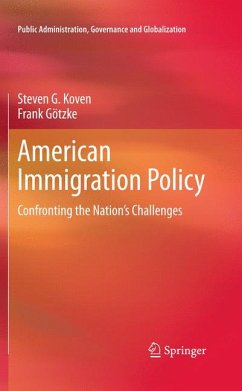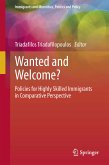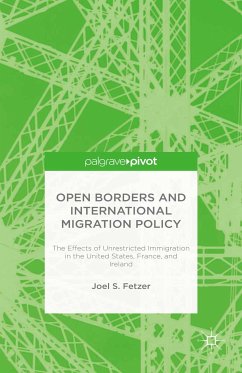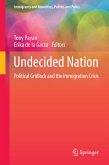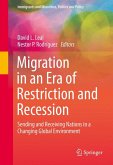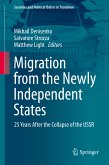The mission of this book is to counter the apocalyptic vision of the American "invasion" with a more balanced account of the consequences of immigration. The book will examine how the United States has dealt with immigration through enactment of various public policies over time. It will approach the issue from a political, economic and cultural perspective with an emphasis on the qualitative, positive contributions of immigrants. The goal of the book is to provide some individual depth to the larger discussion of immigration that typically is carried out at the "macro" level. It argues that immigration policy is cyclical, ranging from very open to very closed borders. Moreover, it asserts that it is difficult to measure the heterogeneous contributions of immigrants and therefore cost-benefit type assessments of immigration are limited. Case studies of how individual immigrants contribute to culture, politics or economic development of the United States offset empirical studies. The book will review previous immigration policy, data related to economic costs of immigration, literature relevant to the question of the dilution or preservation of "American culture", and immigration policies of other Western nations. The book will look at alternative perspectives on integration including an Americanization, Anglo-conformity perspective, a new American, melting pot perspective, and the cultural pluralism perspective. These perspectives in turn influence the degree to which specific options such as guest workers, amnesty, specialized skill, family unification, border enforcement, employer sanctions or political asylum are prioritized. The combination of rigorous data analysis and engaging, qualitative narrative make this book's contribution to the debate on immigration policy in the United States unique.
Dieser Download kann aus rechtlichen Gründen nur mit Rechnungsadresse in A, B, BG, CY, CZ, D, DK, EW, E, FIN, F, GR, HR, H, IRL, I, LT, L, LR, M, NL, PL, P, R, S, SLO, SK ausgeliefert werden.
Hinweis: Dieser Artikel kann nur an eine deutsche Lieferadresse ausgeliefert werden.

